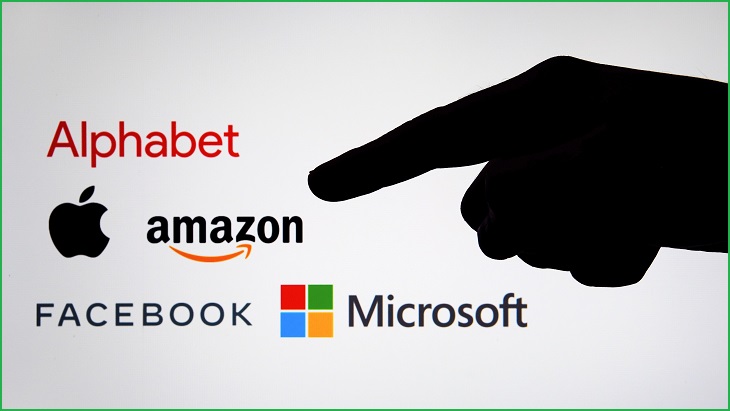The US government has taken a major step toward breaking up uncompetitive tech monopolies after the House Judiciary Subcommittee on Antitrust handing down its report on competition in digital markets.
In a 450-page document, the Democrat-controlled subcommittee outlined the evidence it gathered during the 18-month investigation and produced a series of recommendations to government in order to modernise antitrust law, enhance competition, and limit the growing power of tech giants.
Subcommittee chair, David Cicilline, warned of an historical precedent for breaking up companies that have become large and uncompetitive.
“To put it simply, companies that once were scrappy, underdog startups that challenged the status quo have become the kinds of monopolies we last saw in the era of oil barons and railroad tycoons,” he said.
“Although these firms have delivered clear benefits to society, the dominance of Amazon, Apple, Facebook, and Google has come at a price.
“These firms typically run the marketplace while also competing in it—a position that enables them to write one set of rules for others, while they play by another, or to engage in a form of their own private quasi regulation that is unaccountable to anyone but themselves.”
Six of the subcommittee’s 13 recommendations related specifically to restoring competition in the digital economy.
This section echoed some of the findings of the Australian Competition and Consumer Commission’s (ACCC) Digital Platforms Inquiry – a report which the subcommittee regularly cited, along with a subsequent submission from the ACCC.
Specifically, the recommendations suggested legislation to target issues like conflicts of interest, discrimination and self-preferencing, mergers, bargaining power, and a free and diverse press.
The remaining subcommittee recommendations focused on updating antitrust laws and improving their efficacy.
Who, me?
Heads of the major US tech companies – Amazon, Apple, Facebook, and Google – fronted up to the subcommittee in July.
Each of them denied any wrong-doing despite mounting evidence of aggressive acquisitions, monopolistic behaviour, and practices that favoured themselves above potential competitors.
“For nearly six hours, we pressed for answers about their business practices, including about evidence concerning the extent to which they have exploited, entrenched, and expanded their power over digital markets in anticompetitive and abusive ways,” Cicilline said.
“Their answers were often evasive and non-responsive, raising fresh questions about whether they believe they are beyond the reach of democratic oversight.”
In one instance, after being asked about former Amazon employee testimony that the company used data from third-party merchants to find out which products were selling well so it could build copycats, Jeff Bezos said he “can’t answer that question yes or no”.
Each of the players investigated by the subcommittee were found to have engaged in uncompetitive practices.
Google had “engaged in self-preferencing by systematically ranking its own content above third-party content, even when its content was inferior or less relevant for users”.
Apple’s sole control over app distribution on iOS “appears to allow it to generate supra-normal profits from the App Store and its Services business”.
And Facebook’s aggressive acquisitions have tipped it beyond the point of having “monopoly power in the market for social networking”.
Fighting the giants
Committee recommendations are just a first step toward curbing the power of US tech giants from their home country.
It’s a job that Republican members may be unwilling to undertake given the power tech stocks hold over US equities markets – a favourite talking point of President Donald Trump.
But overseas the fight against US dominance is continuing to take shape with the European Union creating what the Financial Times has described as a 'hit list' of 20 digital companies it wants to combat.
Beyond fines, the EU plans would see tech giants like Google and Facebook share more data other companies who rely on them for business.
A similar undertaking, though on a smaller scale, is taking place in Australia with a proposed media bargaining code that aims to see Google and Facebook pay for news content shared on their platforms.
The code would also require Google and Facebook to share information about data they collect on users and the inner workings of their proprietary algorithms including advanced knowledge of changes to the algorithms that would impact rankings.
Seeing the tide turn against them, both companies have pushed back against the draft law with Facebook saying it would straight-up ban Australian users from posting news to its platforms and Google undertaking an ongoing public relations campaign to win the hearts and minds of Australians in favour of the trillion-dollar Silicon Valley company.










